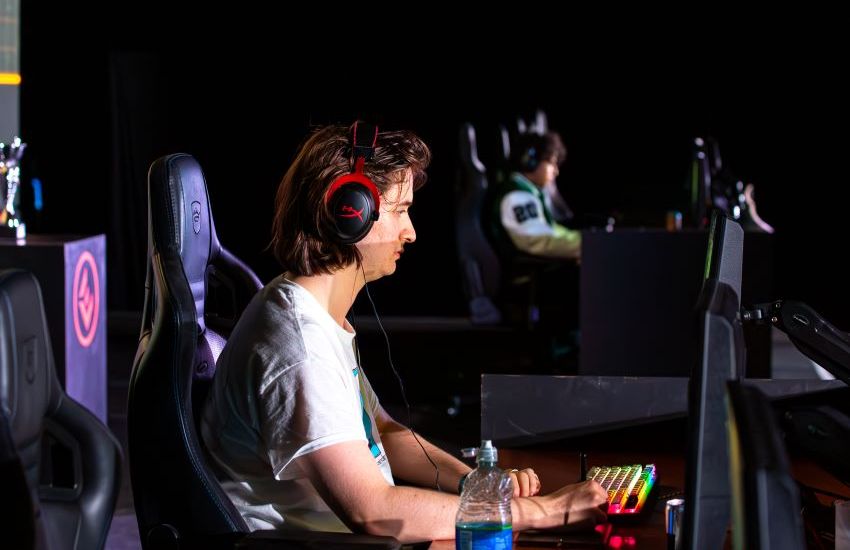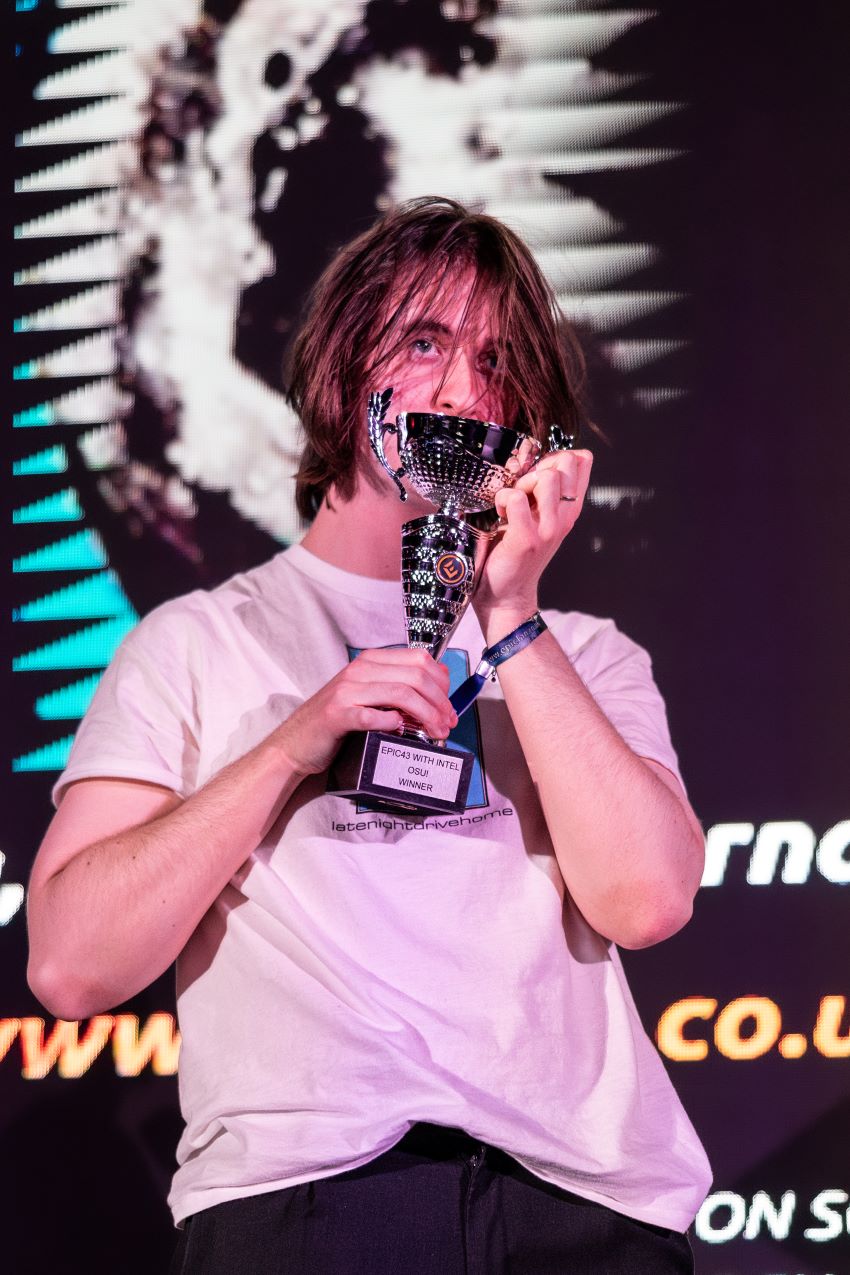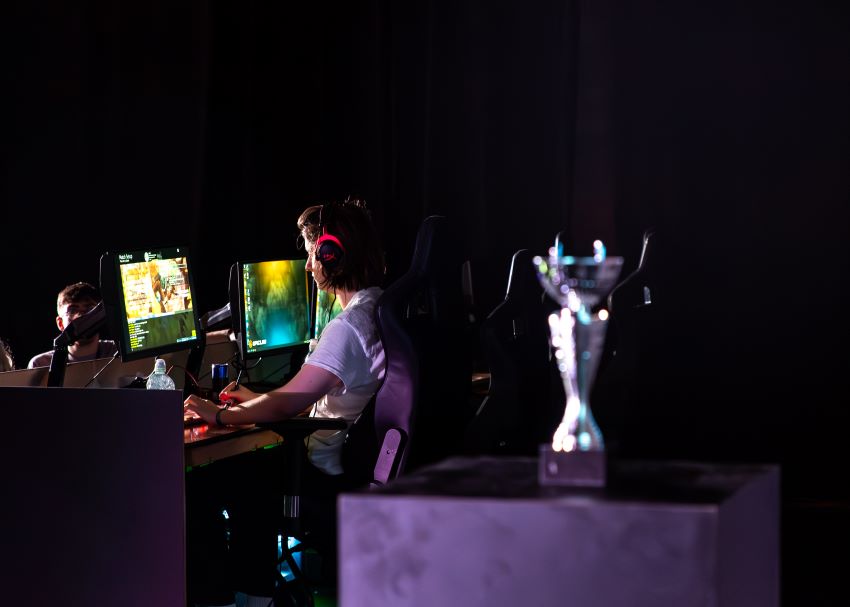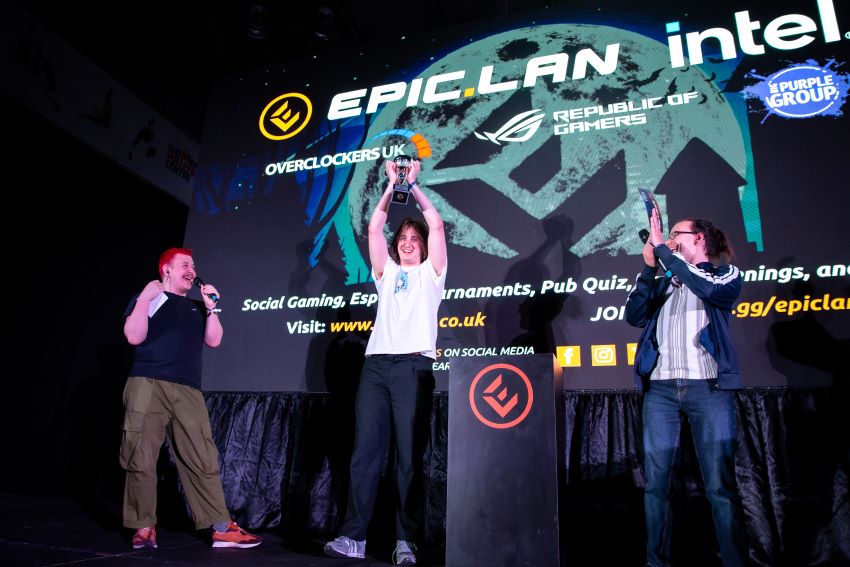


As children across the island eagerly dive into brand-new video games and consoles they unwrapped yesterday, one thing is clear: gaming is more popular than ever. Yet, despite its growing presence in homes and hearts, the hobby still faces lingering stereotypes of laziness and isolation.
Enter Ryan Cranie, a lifelong gamer who is on a mission to break the stigma surrounding his favourite hobby.
“The internet can be a scary place,” admits Ryan, who has been into computers since a young age.
“I was always into computers and games by proxy. I just stuck with computers and maths.”
The enthusiasm the 20-year-old has for games, osu! in particular, is palpable as he speaks to Express via video link off the back of a recent osu! gaming tournament win.
In simple terms, osu! is a rhythm-based game where players click circles in sync with music.
In a dedicated arena, Ryan secured first place in EPIC LAN43 – the biggest tournament in the UK osu! calendar.

Pictured: Ryan came first place in the osu! category in the national gaming competition.
But the former Hautlieu student was not all smiles talking about his journey due to a stigma attached to being a gamer.
“I do think there is a stigma with playing games and assuming [gamers] play for hours a day and do nothing else,” Ryan said.
“The initial stigma with gamers is that they don’t go to school and have little ambitions,” he added.
That judgement he explained was not just external, it also came from those he is closest to, his parents, as they couldn’t relate to his tech-age pastime.
“Growing up I had tension with my parents about games because it's not easy for them to understand,” Ryan said.
“Before 18 I was a little reclusive and didn’t want to meet up with people that much – but there was no problem with that, I was just a child.”
Having been born deaf, Ryan explained that his attraction to games could have stemmed from that initial delay in human contact.
“I was deaf until I was two or three years-old so I was playing on my V-Tech before I was talking to people,” he added.
“Say if my hobby was pool or darts and I was competing in a serious competition, it would be easier for older generations to understand.
“I was frequently told growing up, video games were entirely a waste of my time."
Ryan's hobby may not seem relatable to his parents, but among his age group, it is incredibly popular.
Last year, a survey found that 83% of children in the UK aged 12 to 15 played online games – a number that increased rapidly during and after the pandemic.
That figure shines a light on how big the gaming and eSport industry, The sector has turned over £10 billion in the UK alone and grows at around 15% every year.
Having moved to Glasgow from Jersey after completing his GCSEs, Ryan is now in the final year of a cyber security degree – a subject he explained he found as a result of his interest in computers.
But Ryan recognises that young gamers can develop negative habits as a result of a lack of parental regulation of games.
Those negative habits, or "red flags" as Ryan puts it, can fuel gaming stigma.
“Children can easily pick up bad habits by playing too many video games. It’s an epidemic amongst teenagers, but parents shouldn’t be so worried," he said.
“For example, if a child is doing well in school, is staying social, and staying active, I believe there isn’t a cause for panic if they’re playing video games often.
“There are hundreds of worse things children could be doing, gaming can be a great hobby.”
With gaming keeping up with advancing technologies, such as virtual reality, Ryan added that parents need to take an active interest in their children’s hobbies to avoid any negative gaming habits developing.
“I believe that if a parent understands the games that their child is playing, which they should, there isn’t a cause for concern.
“Anyone whose child plays games should try and understand their benefits. I do understand where they [parents] are coming from, a child shouldn’t be playing Fortnite for 10 hours a day.”

Pictured: Ryan thinks parents should take more interest in gaming to prevent "red flags".
Ryan is an example of how games can develop interests and skills that lead to future opportunities.
Having represented the UK for three times in osu! tournaments, he described his latest as an "exhilarating" experience.
"The achievement not only reflects my personal dedication but also showcases the growing popularity of eSports within our community," he said.
"I feel as if I’ve gained a lot of respect from my family even though it’s 'just a game'."
Just a few months ago the UK's Defence Secretary John Healey was urging gamers to join the British military’s cyber squad.
Ryan explained: “Some games require a lot of decision-making and fast-paced thinking which are admirable skills [for employment]. Communication in team games too.
“I would look at it on a scale. Do they balance their life with playing games? Because there are definitely people who play too much."
As cyber threats become commonplace and warfare becomes more technological, knowledge about computers will become more sought after, Ryan added.
“As technology advances [cyber] attacks will become more prevalent and they affect everyone," he explained.
"I want to be a network engineer since it aligns well with my skills and morals."
Considering its popularity, becoming a professional gamer is possible but, like any job, it requires a considerable amount of effort and networking, Ryan added.
“There are people who make a lot of money from a gaming career," he said – but noted that, like all saturated industries, part of the key to a successful career is luck.
“To make money off gaming as a whole you’ve got to get lucky,” Ryan explained.
“You’ve got to reach out to people, it’s the same way as work, you’ve got to network and collaborate.”
But becoming the best at a game is not about playing all the time, he highlighted.
“If you play games all day every day you’re not going to improve as much," said Ryan.
"It’s so important to balance your life and games otherwise you’re going to struggle.

Pictured: Ryan's parents watched him compete and win the tournament. (Marcin Reihs)
Ryan felt that he managed to change his parents' mind about gaming after they watched him lift the osu! trophy on stage last month via livestream.
“During the final awards on stage, suddenly my grandma’s watching, my dad’s friends, my partner and her family, and then it’s real to them seeing me hold this big trophy," he said.
“I parents finally respect the time I've put into osu! which was kind of unbelievable.
"I got a standing ovation.”
Comments
Comments on this story express the views of the commentator only, not Bailiwick Publishing. We are unable to guarantee the accuracy of any of those comments.